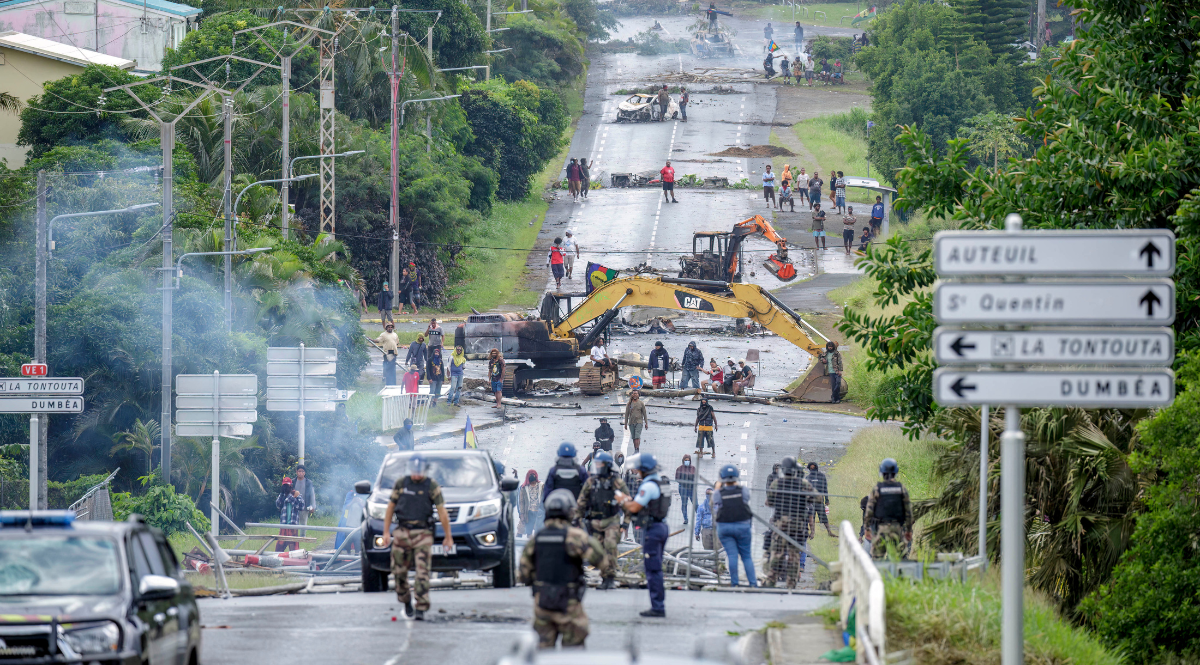COP29: Climate Loses, but Azerbaijan Gains
COP29, the 29th Conference of the Parties to the United Nations Framework Convention on Climate Change (UNFCCC), was held in Baku from 11 to 24 November. This year’s negotiations resulted in an increase in global support from $100 billion to $300 billion per year for developing countries to deal with climate change, although Global South countries had demanded at least $1.3 trillion from developed countries. Azerbaijan played a controversial role, undermining the efforts of negotiators by promoting the interests of its own energy sector.
(1).png) Maxim Shemetov / Reuters / Forum
Maxim Shemetov / Reuters / Forum
Negotiation Issues at COP29
Described as a “finance summit”, this year’s conference aimed to negotiate an increase in funding to support developing countries in their fight against climate change under the so-called “New Collective Quantitative Goals” (NCQG). An important, but technical, topic of discussion was the implementation of Article 6 of the Paris Agreement concerning the creation international carbon markets. Recurring issues were the setting up of a more efficient mechanism for accessing finances from the Loss and Damage Fund and reducing GHG emissions, within which the implementation of existing commitments and support for developing countries to implement green technologies were discussed.
The findings were intended to encourage countries to prepare more ambitious climate plans and targets for next year’s COP30 as part of their Nationally Determined Contributions (NDCs), which are developed every five years. In the case of the EU countries, including Poland, this refers to updated National Energy and Climate Plans.
Scope of the Agreement
After lengthy negotiations, it was agreed that developed countries will increase their annual funding from $100 billion to $300 billion for the period 2025-2035 to help the Global South deal with climate change and decarbonise their economies. The funding will be provided through grants and low-interest loans under bilateral and multilateral agreements, and will come from national budgets and the mobilisation of private capital. However, this is not expected to meet the full needs of developing countries, which are not satisfied with the outcome of the negotiations and had demanded at least $1.3 trillion. The agreement sets this amount only as a target to be achieved by mobilising private sector investment and finding alternative sources of financing (e.g., new global taxes). Despite the EU’s efforts, it was not feasible to secure contributions from rich and polluting developing countries, in particular China and the Gulf States, which contribute on a voluntary basis.
Governments have adopted a legal framework for a centralised trading system of “carbon credits”, setting out how countries can create, trade, and register emission reductions and removals. Examples include projects to plant forests or photovoltaic farms in poorer countries, which in return receive a “credit” to an offset for every tonne of emissions they do not emit or absorb from the atmosphere. Countries and companies can buy carbon credits to help meet their climate goals while supporting developing economies. Trading could start as early as 2025, once technical bodies agree on the details.
In addition to the formal negotiations, Mexico, as the latest G20 member, announced that it will achieve net-zero emissions by 2050. Indonesia, the world’s eighth-largest GHG emitter, has pledged to phase out energy production from fossil fuels. More countries also joined last year’s declaration to triple nuclear capacity by 2050, including Kazakhstan, Turkey, Kenya, and Nigeria.
Traditionally, the summit has been an opportunity to strike commercial deals for oil and gas exports. For example, the Abu Dhabi National Oil Company signed contracts totalling around $100 billion, and Azerbaijan’s SOCAR extended gas supplies to North Macedonia and deepened cooperation with Italogas.
Controversy over Azerbaijan
After the United Arab Emirates (COP28) and Egypt (COP27), Azerbaijan was the next host country and another one with an economy largely based on oil and gas production (in 2022, the sector accounted for about half of the country’s GDP and 92% of its export revenues). This time, the organisers, and particularly President Ilham Aliyev, made no secret of their own intentions to take a more “realistic” approach to climate change and a pragmatic one to the COP presidency. In a provocative opening speech, Aliyev described oil and gas as a “gift from God” while reiterating his support for the green transition. In his remarks, he accused Western countries of hypocrisy and double standards on climate policy, pointing out that it was the EU that proposed to increase gas imports from Azerbaijan to the EU in 2022. France was criticised for keeping Corsica and its remote overseas island territories (e.g., New Caledonia) “under colonial rule”, leading to the cancellation of a visit by the French environment minister.
The organisers also fought with environmental and human rights activists, many of whom were denied entry to the event (including Swedish activist Greta Thunberg, who was not allowed to cross the border). The concomitant lack of respect for human rights and democratic principles in Azerbaijan discouraged most Western leaders (including the president of the European Commission, the leaders of France, Germany, Canada, and the U.S.) from attending the event, which lowered its status and led to poor results in the negotiations. This did not prevent Azerbaijan’s authorities from promoting the message of the country’s growing importance in international relations, both in the domestic and foreign spheres.
Azerbaijan’s earlier efforts to make COP29 a “peace and security” summit, which was supposed to lead to a global “unprecedented ceasefire” for the duration of the COP, were a failure. The conference also failed to conclude the announced peace deal between Armenia and Azerbaijan, which the parties had been informally signalling since last December.
Azerbaijan used COP29 to strengthen its image as a potential producer and exporter of green energy. State-owned SOCAR Green has entered into several partnerships and agreements with Saudi Arabia and China on renewables development, including the construction of 1.2 GW of photovoltaic projects and a 3.5 GW offshore wind farm. On the sidelines of the summit, it also strengthened regional cooperation in the Caspian Sea region by signing a memorandum on the development of a “Green Energy Corridor” linking Central Asia and the Caucasus with Europe.
Conclusions
Next year’s COP30 will be held in Belem, Brazil. Given the course of this year’s negotiations, which the oil industry used to make business deals, more and more people and organisations are questioning the holding of climate conferences in oil-states (Brazil is the 8th largest oil producer) that are not pursuing a green transition. An example of a call for wider reform of the global climate talks is the 15 November letter signed by more than 20 experts and leaders, including former UNFCCC head Christiana Figueres and former UN Secretary-General Ban Ki-moon. It recognises the achievements of COP to date while emphasising the need for fundamental change, which would aim for, among other things, the concrete implementation of commitments and accountability of actions, particularly in the area of financing.
EU countries can support broader reform of the climate talks, including the principle that the host country must be effectively pursuing climate neutrality. It remains in the EU’s interest to step up pressure on carbon-intensive, rich, developing countries (e.g., China) to engage more widely and transparently in financially supporting countries in the Global South to combat climate change and decarbonise their economies.
As already the case at this year’s summit, COP30 will be affected by the election of Donald Trump as U.S. president. He is openly hostile to efforts to mitigate climate change and has, among other things, announced withdrawal again from the Paris Agreement. His intention to move the U.S. away from global action on climate change could undermine COP’s purpose and encourage some countries to scale back ambitious climate targets.


.png)

.png)
